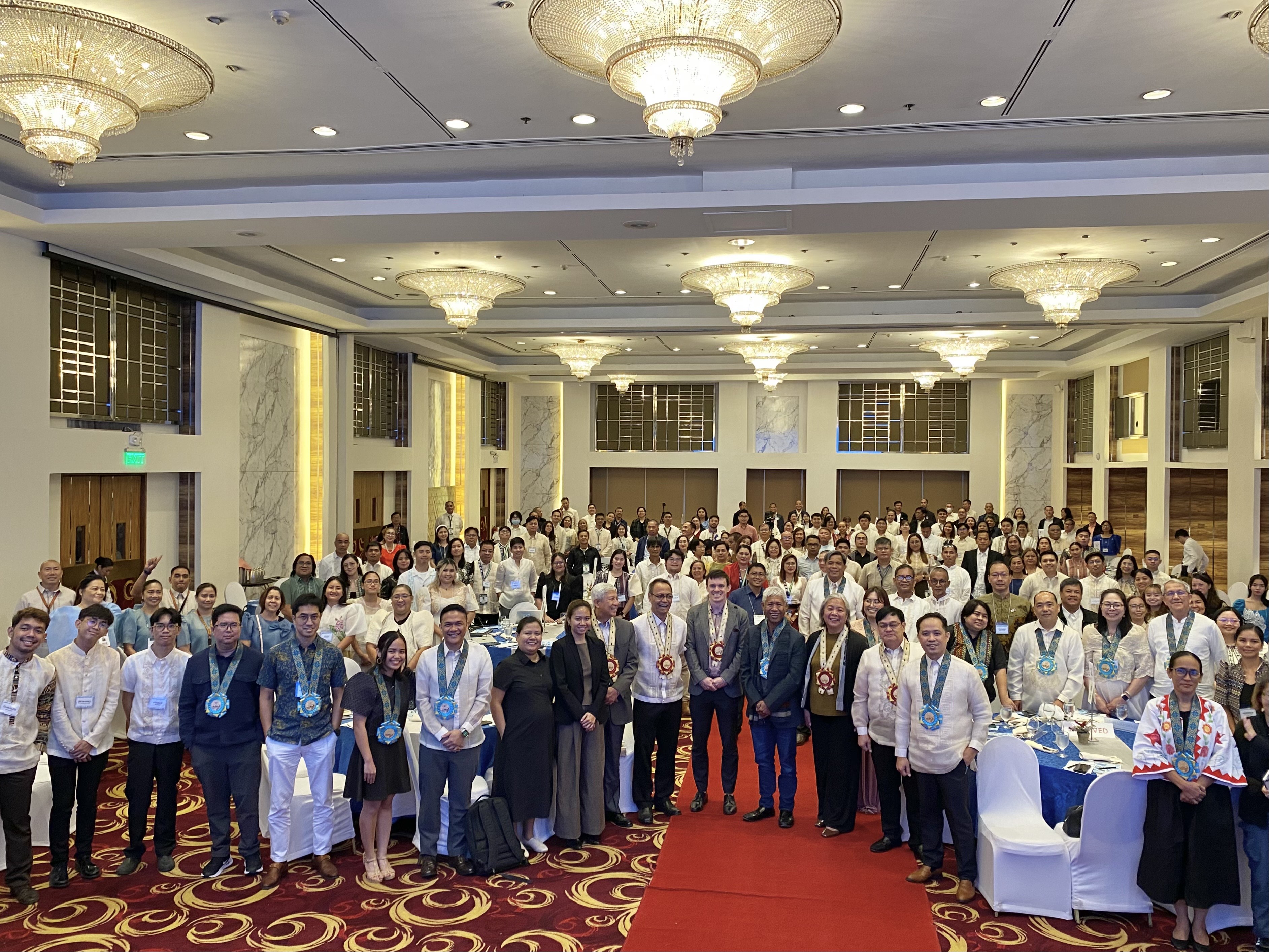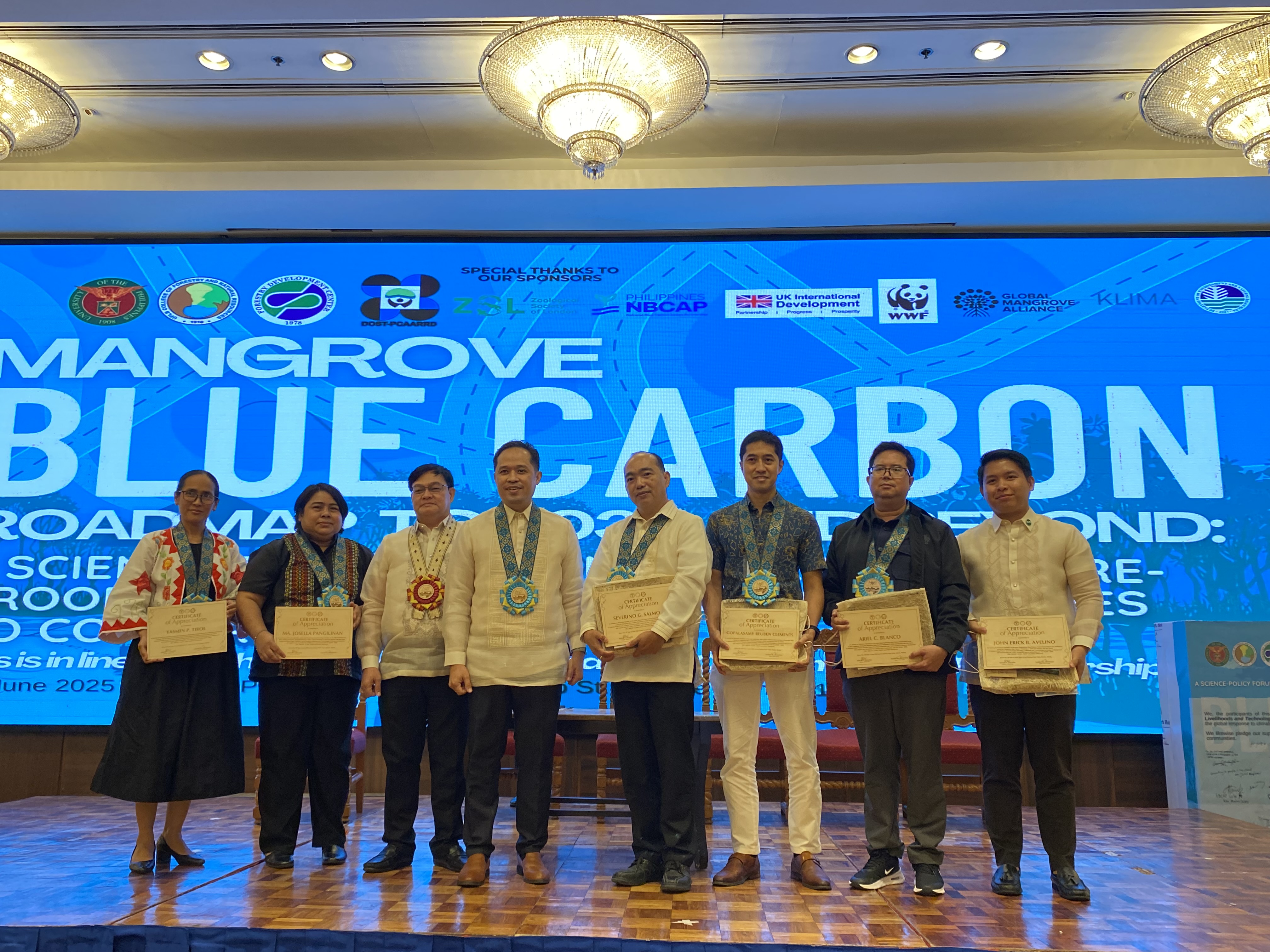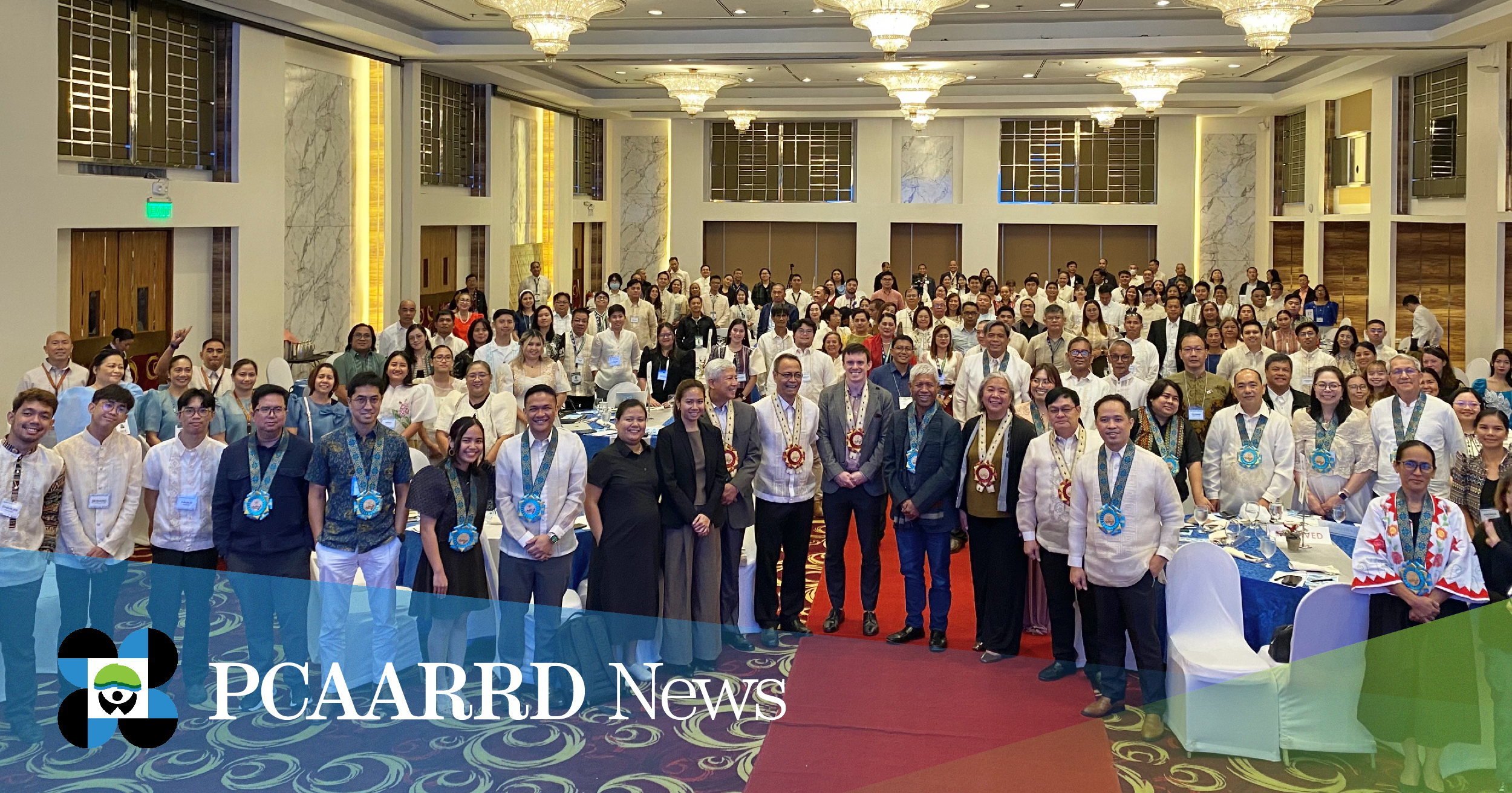
The Forestry Development Center (FDC) of the University of the Philippines Los Baños (UPLB) conducted the “Mangrove Blue Carbon Roadmap to 2030 and Beyond: A Science-Policy Forum towards Future-Proofing Livelihoods and Technologies to Conserve Mangroves” on June 18, 2025 at the Century Park Hotel, Malate, Metro Manila. The event brought together more than 200 stakeholders to create a mangrove blue carbon roadmap for 2030 and beyond to promote sustainable mangrove management.
UPLB-College of Forestry and Natural Resources (CFNR) Dean Marlo D. Mendoza welcomed the participants and expressed pride in leading initiatives that translate research into action. He emphasized the importance of the mangrove ecosystem, particularly in providing livelihood opportunities for local communities.
UPLB Vice Chancellor for Research and Extension Nathaniel C. Bantayan, on behalf of UPLB Chancellor Jose V. Camacho, Jr., discussed the significance of the forum in laying the foundation for a more connected and inclusive roadmap. He encouraged the participants to maximize the opportunity to share knowledge and collaboratively develop future-proof policies.
DOST-PCAARRD Deputy Executive Director for Research and Development Juanito T. Batalon, representing DOST Secretary Renato U. Solidum, Jr. and PCAARRD Executive Director Reynaldo V. Ebora, emphasized the importance of the collaboration of science, policy, and community in advancing nature-based solutions and reaffirmed DOST’s strong support.
British Embassy Manila Economic and Climate Counselor Lloyd Cameron identified four key opportunities of blue carbon: natural carbon sinks, coastal resilience, biodiversity, and nature-based investment. He stressed the urgency to ensure that science turns into policy for future generations.
DENR Biodiversity Management Bureau (DENR-BMB) Assistant Director Mariglo Laririt, on behalf of Assistant Secretary Marcial C. Amaro, Jr., called the forum a platform for action wherein the roadmap serves as a blueprint and collective effort to protect ecosystems.
Guest speakers from various stakeholders presented forum topics that addressed mangrove conservation through the blue carbon ecosystem, restoration, partnership, roadmap, and investment and finance opportunities. They recognized the essential role of the community, including youth, as drivers of change not only for mangrove blue carbon but also for the broader environment.
Workshops were held to develop the Mangrove Roadmap 2030 and Beyond. The workshop highlighted four key themes: science for blue carbon and climate action; policy, governance, and institutional mechanisms; livelihood and social equity; and innovations and technologies for conservation. The presentations emphasized that while blue carbon and climate action are grounded in scientific research, promoting a comprehensive approach that integrates social, environmental, and technological dimensions, certain research gaps remain and need to be addressed.

In closing, DOST-PCAARRD Deputy Executive Director for Administration, Resource Management and Support Services Melvin B. Carlos expressed his deep gratitude to all participants, speakers, and partners for their active involvement and support in the forum. The forum reinforced the need for science-based, inclusive, and community-driven actions to protect and restore mangrove ecosystems. Dr. Carlos called for continued collaboration, innovative financing, and shared data frameworks to sustain the momentum and transform the shared vision into a concrete action.
The forum was funded by the Philippine Council for Agriculture, Aquatic and Natural Resources Research and Development of the Department of Science and Technology (DOST-PCAARRD) and co-sponsored by DENR, Zoological Society of London, Philippines National Blue Carbon Action Partnership, British Embassy Manila, World Wide Fund for Nature (WWF), Global Mangrove Alliance, and Klima by the Ayala Group.

